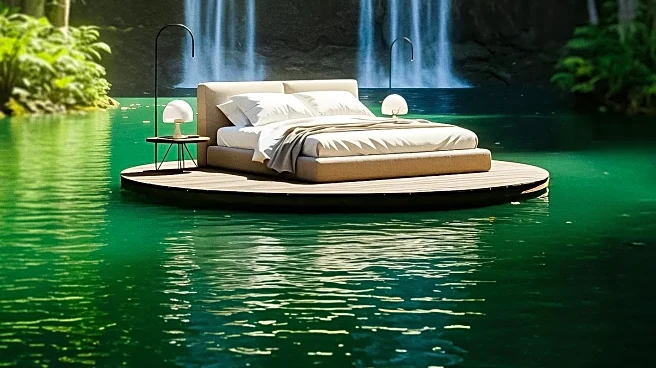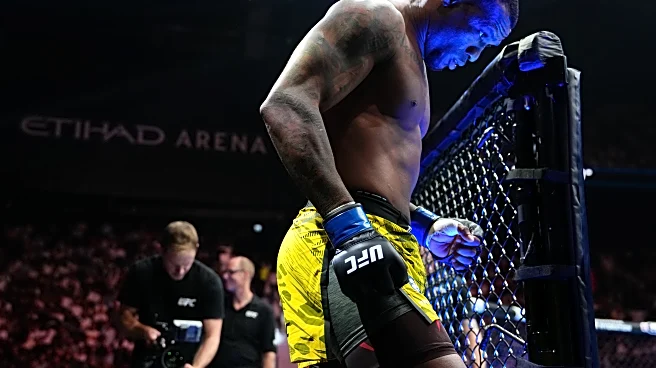What's Happening?
The hospitality industry is facing a challenge of homogeneity, where luxury resorts and hotels are becoming indistinguishable due to safe and neutral design choices. This trend is driven by executives' fear of risk, leading to a copy-paste mindset that prioritizes proven designs over originality. As a result, many properties lack individuality, making them forgettable to guests. Some hotels are countering this by transforming overlooked spaces into memorable experiences, increasing guest engagement and revenue. The focus is shifting from interior design to experience design, emphasizing emotional resonance and surprise to stand out in a competitive market.
Why It's Important?
The shift towards unique and immersive experiences in hospitality is crucial for maintaining competitiveness in a saturated market. With guests having access to a plethora of options globally, differentiation is essential for survival. Properties that invest in emotional design report higher guest satisfaction and loyalty, as well as increased organic content creation. This trend reflects a broader consumer demand for memorable and shareable experiences, which can drive brand engagement and long-term success. Hotels that fail to adapt risk becoming invisible in a landscape where surprise and personality are key differentiators.
What's Next?
Hotels and resorts are likely to continue exploring innovative ways to create unique experiences that resonate with guests. This may involve strategic investments in multisensory design and storytelling to enhance brand identity. As social media continues to influence travel decisions, properties will need to leverage these platforms to showcase their distinctive offerings. The industry may see a rise in collaborations with creative agencies specializing in experience design to craft memorable moments that captivate audiences. The focus will be on balancing creativity with strategic planning to ensure both guest satisfaction and business viability.
Beyond the Headlines
The move towards experience-driven hospitality has ethical and cultural implications, as it challenges traditional notions of luxury and refinement. By prioritizing emotional engagement over visual polish, the industry is redefining what it means to offer high-end service. This shift may influence other sectors, such as retail and entertainment, to adopt similar strategies in creating immersive environments. Additionally, the emphasis on individuality and storytelling could lead to a broader cultural appreciation for diversity and creativity in design, impacting how spaces are perceived and valued.









